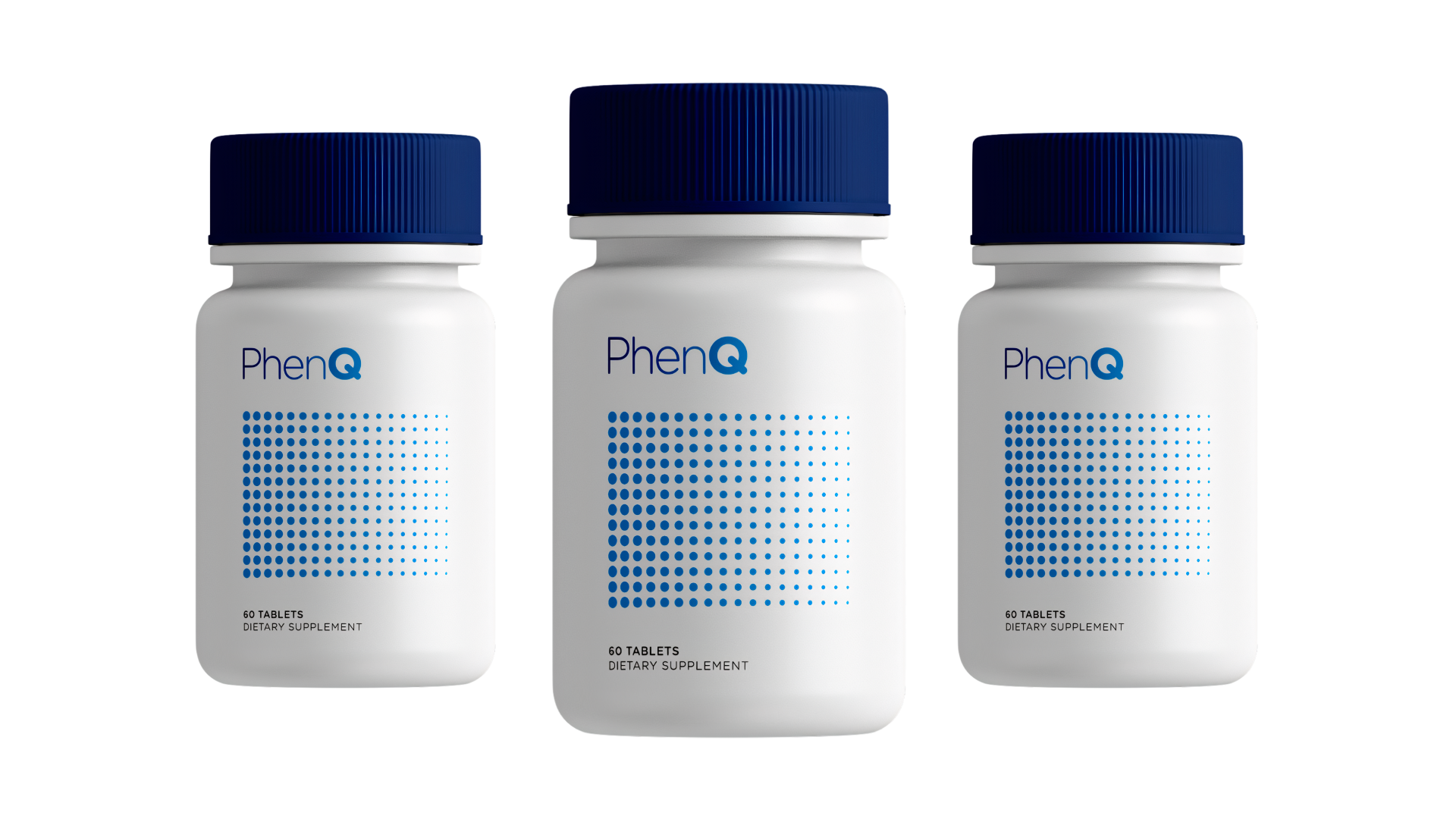What you'll learn here... |
Are you on the lookout for a weight loss supplement, but don't exactly know where to start?
Whether you're looking to drop a significant amount of weight or just lose a few pounds, dietary supplements might be something you’ve come across on your journey.
Here, we're taking a deep dive into the different types of weight loss supplements and how to use them the right way.
Yes, it can be tricky deciding which type of supplement you want to go for—but we’re here to help you every step of the way.
While there’s no short answer to the popular question, 'Do weight loss supplements work?', rest assured that by the end of this guide—you will have a well-rounded view of dietary supplements, their benefits, and how to use weight loss supplements to your body-boosting advantage.
Ready? Let's go.
What are weight loss supplements?
Weight loss supplements are products designed to aid in weight management by promoting weight loss or reduction.

These supplements come in various forms, including pills, capsules, powders, and liquid extracts. They often contain a combination of ingredients, which can include vitamins, minerals, herbs, amino acids, and other substances that support people to lose weight.
Related: The Beginner’s Guide to Weight Loss Supplements
What types of weight loss supplements are available?
While there are lots of different supplements on the market, each claim to help with different aspects of weight management.
Here are some common types of weight loss supplements…
Appetite suppressant
These supplements aim to reduce feelings of hunger and promote a sense of fullness, leading to a reduced calorie intake. Common ingredients include glucomannan and 5-HTP.
Fat burner (thermogenics)
Fat burners work by increasing the body's metabolism, encouraging the burning of stored fat for energy. Ingredients may include caffeine, green tea extract, cayenne pepper, L-carnitine, green coffee bean extract, and CLA (Conjugated Linoleic Acid).
Carb blocker
Aiming to inhibit the absorption of carbohydrates from the digestive tract, carb blockers reduce the overall calorie intake. White kidney bean extract is a common ingredient in this type of supplement.
Fat binder
Fat binders prevent the absorption of dietary fats in the digestive tract, allowing them to pass through the body undigested. Chitosan is a popular fat-binding ingredient.
Metabolism booster
These supplements aim to increase the body's metabolic rate, helping to burn more calories at rest. Ingredients may include L-carnitine and caffeine.
Thyroid regulator
Some supplements claim to support thyroid function, which regulates metabolic processes. Ingredients may include iodine, selenium, and tyrosine.
Meal replacement
These supplements usually come in the form of shakes or bars and are designed to replace one or more meals to control calorie intake. They often contain a mix of proteins, vitamins, and minerals.
Herbal supplement
Various herbal extracts can contribute towards you losing weight. Examples include Garcinia cambogia, green coffee bean extract, and forskolin.
Digestive enzymes
Some supplements claim to enhance the breakdown and absorption of nutrients, promoting a more efficient digestive process. These may include enzymes like lipase, amylase, and protease.
Stimulants
Stimulant-based supplements, often containing caffeine or other stimulant compounds, aim to boost energy expenditure and alertness. But, they may have side effects and are not suitable for everyone.
Note: The effectiveness and safety of these supplements can vary, and individual responses to dietary supplements may differ. Safety should always be a priority when taking supplements. If you’re in doubt, talk to your doctor.
The dos and don'ts of taking weight loss supplements

If you’re ready to embark on your weight loss supplement journey, there are a few do’s and don’ts you need to consider to ensure your safety. Going on a new supplement regime can have an effect on the body, so it’s important to know exactly how to take them in a safe way that does not pose risk to your health.
The dos…
Talk to a healthcare professional
Before starting any regimen to lose weight, be sure to consult with a healthcare provider— especially if you have pre-existing health conditions or take other medications.
Research and choose trusted products
Investigate and choose supplements from reputable brands with a history of safety and efficacy.
Look for products that have undergone third-party testing and are regulated by an official standards agency.
Read labels carefully
Understand the ingredients in the dietary supplements for losing weight. Steer clear of supplements with proprietary blends or undisclosed amounts of ingredients. When it comes to weight loss supplements, transparency is key.
Follow the recommended dosage
Adhere strictly to the recommended dosage instructions provided on the product label.
Taking more than the recommended amount won't necessarily lead to faster results and can be harmful.
Use as part of a healthy lifestyle
Use the supplements as a complement to a balanced diet and regular exercise. They’re not a substitute for a healthy lifestyle.
Monitor for side effects
Keep a keen eye out for any adverse reactions or side effects. If you experience any unusual symptoms, stop using your supplement and consult with your healthcare professional.
Don'ts
Overuse or misuse
Do not exceed the recommended dosage in an attempt to speed up your weight loss journey. This can lead to adverse effects and health risks.
Ignore your health status
If you have underlying health conditions or take medications, do not use any dietary supplements without consulting your healthcare provider.
Some ingredients may interact with medications or exacerbate existing health issues.
Fall for unrealistic claims
Be extra skeptical of supplements making extravagant claims, such as dramatic weight loss with little or minimal effort. If it sounds too good to be true—it probably is.
Neglect a balanced diet
The supplements are not a substitute for nutritious food. Maintain a well-balanced diet with a variety of nutrients.
Top tip: Check out our guide to delicious and nutritious adult lunch ideas to level up your daily diet.
Do not rely solely on supplements
Relying solely on supplements for weight loss is not recommended for several reasons.
Let’s take a look.
Incomplete nutrition

Weight loss supplements often focus on specific ingredients thought to aid in weight loss, but they may lack the comprehensive range of nutrients found in whole foods. Relying solely on supplements can lead to nutritional deficiencies.
Limited long-term success
Sustainable weight loss requires a holistic approach that includes a balanced diet, regular exercise, and healthy lifestyle habits.
Depending only on supplements neglects the importance of making long-term, positive changes to your overall lifestyle and disregards healthy living.
Unrealistic expectations
Supplements are not magic solutions for weight loss. Relying solely on them may lead to unrealistic expectations and disappointment, as weight loss typically requires a combination of factors, including dietary changes and increased physical activity.
Temporary solutions
Many weight loss supplements may produce temporary results, and once you stop taking them, all your hard work will be reversed if you don’t stick to healthy lifestyle habits. Remember, sustainable weight management involves long-term lifestyle changes.
Potential health risks
Some weight loss supplements may contain ingredients that can pose health risks, especially if you take them in excessive amounts or for extended periods.
Without proper guidance, relying solely on supplements may lead to unintended health consequences.
Sustainable change
Relying solely on supplements doesn't provide the education and awareness needed to make healthier food choices and adopt sustainable lifestyle habits. Understanding nutrition and making informed choices are crucial for long-term weight management.
Top tip: For effective and sustainable weight loss, you should adopt a well-rounded approach to your journey. And that includes following a nutritious diet, regular physical activity, and positive lifestyle changes. You can do it.
Related: How often should you work out to lose weight?

What Are The Side Effects of Weight Loss Supplements?
The side effects of weight loss supplements can vary widely depending on the specific ingredients and formulations used in the products.
It's important to note that not all weight loss supplements cause side effects, and individual responses may differ.
But, some common side effects associated with certain types of weight loss supplements include…
Gastrointestinal and digestive Issues
Many weight loss supplements contain ingredients that may cause gastrointestinal disturbances like nausea, vomiting, diarrhea, or abdominal discomfort. Ingredients such as fiber may lead to digestive issues like constipation or bloating.
Increased heart rate and blood pressure
Stimulant-based weight loss supplements, often containing caffeine or other stimulants, can lead to an increase in heart rate and blood pressure.
Insomnia or sleep issues
Stimulants can also lead to difficulties in falling or staying asleep, potentially causing disrupted sleep patterns.
Headaches, dizziness or lightheadedness
Some individuals may experience headaches as a side effect of certain supplements. Changes in blood pressure or dehydration can also lead to feelings of dizziness or lightheadedness.
Dry mouth
Stimulants may contribute to dry mouth, as they can increase fluid loss through increased urination.
Liver damage
Certain weight loss supplements may contain ingredients that can potentially cause liver damage, especially with supplements containing herbs or extracts.
Interactions with medications
Weight loss supplements may interact with medications, potentially affecting their efficacy or causing adverse reactions.
It's crucial to consult with a healthcare professional if you’re taking any medications.
Psychological effects

Some people may experience mood changes, anxiety, or irritability as a result of certain weight loss supplements, especially those containing stimulants.
Dependency and withdrawal
Stimulant-based supplements can lead to dependency, and abrupt discontinuation may result in withdrawal symptoms such as fatigue, irritability, and mood swings.
Meet PhenQ
If your aim is to shed the pounds with a supplement containing natural ingredients, then take a look at PhenQ.
This weight loss supplement compliments your weight loss journey perfectly alongside healthy eating, a low-fat diet and exercise.
PhenQ pills have been specifically designed to boost metabolism, burn fat, and make you feel fuller for longer with a natural formula.
Not only can PhenQ boost your body’s metabolic and thermogenic rates it can also stop the production of new fat cells, curb your appetite, boost your energy and improve your mood.
Get PhenQ today—why wait?
FAQs
Do weight loss pills work?
In short—yes, weight loss pills have the ability to work. But it depends on the supplement and how an individual’s body reacts to it. The effectiveness of weight loss pills can vary depending on the specific ingredients, formulation, and individual response to the supplement.
While some weight loss pills have limited efficacy, others may produce more noticeable results. Other factors, such as diet, exercise, genetics, and other health conditions, can affect how well the pills work.
Note: You should take weight loss pills in conjunction with a healthy diet and exercise to help for the best results.
Find out more about whether weight loss pills work here.
Are fat burners good for weight loss?
Fat burners have been shown to be effective and work well in helping so many people lose weight. For the best results, you should use fat burners as part of a healthy, balanced lifestyle.
Want to know more? Check out our essential guide on fat burners.



